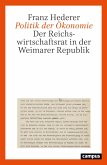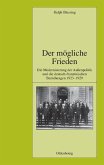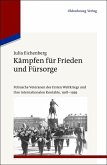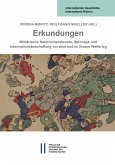After 1918, referendums were held in several countries to clarify the affiliation of disputed territories. The instrument was supposed to correspond to the right of self-determination of the peoples propagated by the victorious powers. However, it soon became clear that it was also claimed by the defeated Central Powers or their successor states in order to revise border changes determined by the victors. Therefore, by far not all referendums discussed after 1918 were held. Moreover, the referendums that were actually held showed that voting behaviour was often not shaped by ethnicity, but by other considerations. Do referendums thus prove the persistence of non-national identifications? Have referendums been an instrument for creating a democratically legitimised peace? These considerations are explored in this volume, which includes comparative essays and case studies on East Prussia, Upper Silesia, Northern Schleswig, Carinthia and Burgenland.
Dieser Download kann aus rechtlichen Gründen nur mit Rechnungsadresse in A, B, BG, CY, CZ, D, DK, EW, E, FIN, F, GR, HR, H, IRL, I, LT, L, LR, M, NL, PL, P, R, S, SLO, SK ausgeliefert werden.









